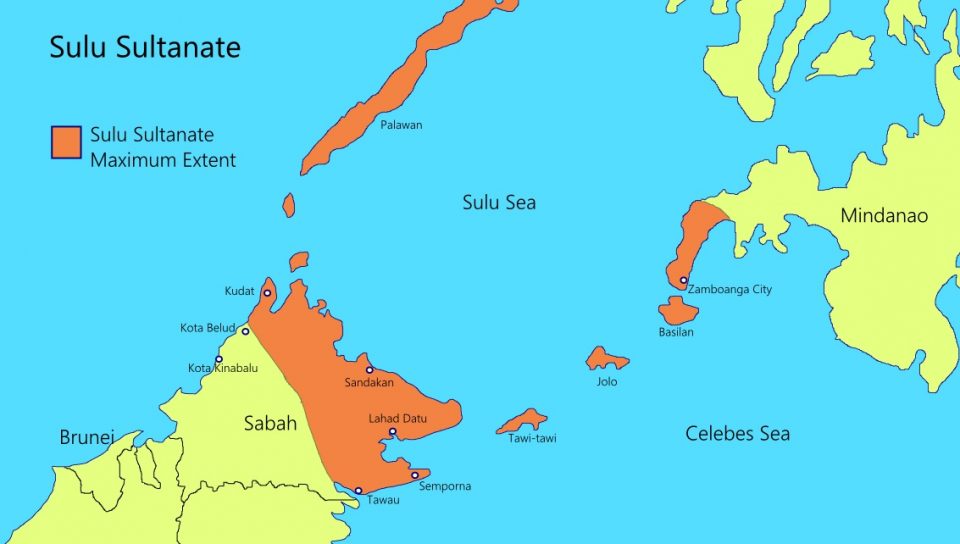Negotiations have started between the Malaysian government and the descendants of the Sultanate of Sulu who are based in Sabah as they are also now working on an amicable settlement amid the $14.9 billion arbitration award granted by a French tribunal.
A source of the Daily Tribune said the heirs who are now Malaysian citizens have coordinated with their relatives in Sulu to inform them of the ongoing mediation with the Malaysian government.
“Malaysia is now willing to talk with the claimants who filed the case before the international arbitration tribunal,” the source said.
Lawyer Rexie Efren Bugaring, a counsel of a member of the Sultanate, confirmed the talks but declined to expound on it saying that any statement may breach the lawyer-client relationship.
The source, however, said the Sulu heirs in Malaysia want a moratorium on the seizure of Malaysian assets in the Philippines pending the outcome of the talks with the Malaysian government.
The Sulu-based heirs who filed the arbitration case, however ruled out any talks with Malaysians saying that their main concern is the full implementation of the $14.9 billion award.
Sultanate complies with deal
Based on the recounting of the century-old deal as related to the proceedings of lone arbitrator Dr. Gonzalo Stampa, the Sulu Sultanate asserted it has been complying with both the 1878 agreement and the 1903 Confirmatory Deed, but Malaysia, on its part, “would have incurred in a fundamental breach of its essential payment obligations under their terms since 1 January 2013, for reasons attributable, in their opinion, to the respondent, as it admitted in its correspondence of 19 September 2019.”
The 1903 document was how its title stated it to be, which is an agreement that confirmed the earlier deal in 1878.
The Sulu claimants wanted amendments to the 1878 agreement pursuant to Article 7.3.1 of the International Institute for the Unification of Private Law (UNIDROIT) Principles as of 1 January 2013.
They pleaded the 1878 Agreement became “unbalanced to their detriment,” as the surrounding circumstances at the time of its signature would have radically changed by the subsequent discovery of natural resources such as hydrocarbons and palm oil which thrived starting 1970.
“The Parties would have been unable to anticipate nor to include this expansion in either the 1878 Agreement or the 1903 Confirmatory Deed and failed to make any further amendment of either of the documents after said discoveries,” according to the Sultanate’s lawyers.
Thus, the heirs have opened the avenue for Malaysia to negotiate the contract.
The heirs sought the arbitrator’s intervention on the scope and terms of a properly rebalanced agreement, “under the hardship doctrine contained in Article 6.2.2 of the UNIDROIT Principles” as alternative relief, if the 1878 Agreement and the 1903 Confirmatory Deed are not terminated.
Malaysia representative
While Malaysia dismissed the proceedings, citing the impact of the case on its sovereignty, it tapped a certain Tim Portwood to act on its behalf in the proceedings “but without submitting proper evidence of such representation.”
It also resorted to “ex parte communication” directly sent to the arbitrator without the other party being informed.
“The ex parte communication of 17 December 2021 contained a letter, with enclosures, informing of the filing by Malaysia of an appeal against the Exequatur of the Preliminary Award on 10 December 2021, before the Paris Court of Appeal and of the existence of the Suspension Order, which was also attached, along with its request filed before the First President of the Paris Court of Appeal and dated 10 December termed Suspension Order Request.”
Lawyers of the claimants then argued Malaysia’s sovereignty is not at risk, since the sole purpose of the arbitration, in their opinion, “is to adjudicate a commercial dispute under the UNIDROIT Principles”.
They also claimed the suspension order was flawed and cannot serve the intended purpose of the respondent, because the Suspension Order cannot have any effect on the arbitration.
The Suspension Order cannot curtail, delay or disrupt the ongoing arbitration proceedings and characterized the Respondent’s request for this arbitration to be discontinued on such basis as procedurally and substantially groundless under Article 1526 of the French Law of Arbitration.
“Claimants thus requested that the respondent’s pretension be dismissed, and arbitration continued as planned to issue the Final Award,” according the court ruling.
